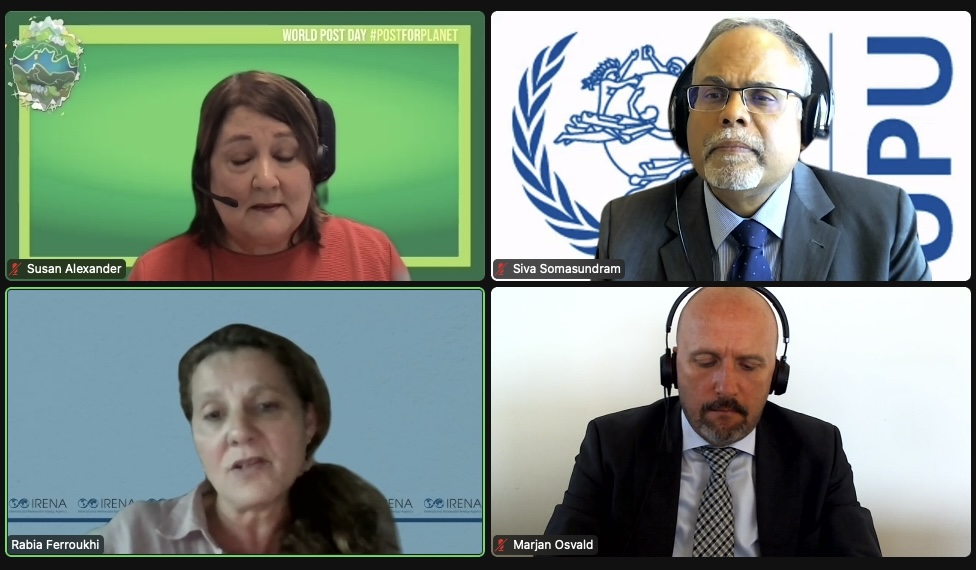As a member of the United Nations family, the UPU remains committed to ensuring the postal sector does its part to fulfil the 2030 Agenda for Sustainable Development. This includes Sustainable Development Goal 13, which calls on the world to "Take urgent action to combat climate change and its impacts".
The UPU’s global postal network is trusted to provide essential services to billions of people, including those living in even the most remote communities. It operates a physical network of hundreds of thousands of post offices and vehicles, as well as an expanding digital, financial and social services infrastructure served by more than 5 million employees.
The UPU has committed to dramatically reduce the greenhouse gas emissions of the postal network, to increase its resilience to climate disruption, and to develop innovative climate services for other sectors.
Postal sector commitment
In 2021, UPU members adopted Resolution C/17, which provided the organization with the mandate to identify feasible global emissions reduction targets and support knowledge and capacity building necessary to ensure postal operators across its 192-member-country-strong network can reduce their emissions and develop climate-resilient operations.
During its 2023 Extraordinary Congress, members advanced work on climate action within the sector, adopting an integrated “Green Package” that:
- Sets voluntary UPU emission reduction targets (including a global target of 85% carbon reduction by 2050) and associated implementation plans;
- Creates a three-tiered approach to facilitate the achievement of these targets, reflecting the range of capabilities and ambitions of postal operators;
- Launches the UPU Postal Climate Transparency Action, an initiative designed to increase the visibility of climate commitments by individual postal stakeholders;
- Establishes a UPU climate facility to enhance access to finance for climate-related projects, provide systemic institutional support to facilitate sector-wide climate action, build capacity and gather required resources;
- Promotes collaboration between the UPU network and wider postal sector on climate action.
The UPU has already an active programme in the field of carbon reporting, the Online Solution for Carbon Analysis and Reporting (OSCAR), that postal operators can take advantage of to track their progress.
Climate services for other sectors
While the UPU has committed to greening postal infrastructure, it is important to remember that the global postal network can play an even broader role in supporting climate action target. The global postal network offers an extensive and trusted infrastructure that could help other partners – from UN organizations and government to the private sector – to achieve their climate action goals.
The postal network can offer:
- Opportunities for low-emission investment
- A test-bed for new climate technologies and solutions
- Support for the roll-out of national climate initiatives
- Possibilities for sharing electric vehicle charging infrastructure
- Locations for generation of electricity from renewable sources
- An early warning system for isolated or vulnerable people
- Disaster recovery assistance and services for displaced people
- Environmental data collection
- Far-reaching climate education and awareness campaigns
- Facilitation of the circular economy through reverse logistics, recycling and waste collection
- Delivering sustainable e-commerce
- Joint research initiatives
To explore these opportunities, please contact sustainability[@]upu.int
Upcoming events
More to follow soon
Past events and presentations

December 2021: Posts, Planet and Economies: A circular route to postal sustainability
Hosted by UPU
Presentation by Janet Salem, UNESCAP: English
Presentation by Stephan Sicars, UNIDO: English
Full record: English
March 2020: The 4th open sustainability webinar on "Climate-neutral Postal Operations - the how and the why of carbon offsetting"
Hosted by UPU, IPC
Presentation by Miguel Alejandro Naranjo Gonzalez, UNFCCC: English
Presentation by Daniel-Sebastian Mühlbach, Austrian Post: English
Full record: English
October 2019: The 3rd open sustainability webinar on "Transition to renewable energy - best practices from two postal operators"
Hosted by UPU, IPC
Presentation by El Houssin AitYassine, Poste Maroc: English, French
Presentation by Peter Shelley, Australia Post: English
Full record: English
November 2018: The 2nd open sustainability webinar on "Alternative vehicles - the future of postal fleets"
Hosted by UPU, IPC
Presentation by Lars Pappe, Deutsche Post DHL Group: English
Presentation by Antoine Doussaint, Le Groupe La Poste: English
Full record: English
March 2018: The open sustainability webinar on "Measuring carbon footprints – the challenges of environmental data collection"
Hosted by UPU, IPC
Presentation by Tom Day, USPS: English
Presentation by Luís Paulo, CTT Portugal Post: English, French
Presentation by Gerardo González Arizmendi, Correos de México: English, Spanish
Publications
Traditionally established to deliver letters and parcels, the postal network has also expanded to provide access to financial and government administration services. A recent collaborative project between the UPU and the United Nations Environment Programme (UNEP) has demonstrated that postal networks can serve as sustainable infrastructure, contributing significantly to global sustainability objectives.
With their extensive reach and established infrastructure, postal networks are uniquely positioned to implement diverse sustainability initiatives and services. Their significant role in logistics and e-commerce further enables them to promote sustainable consumer behaviors and collect essential data to address global challenges, such as plastic waste management and the viability of reverse value chains. As part of this project, a series of case studies were developed to showcase good practices in France and Malaysia.
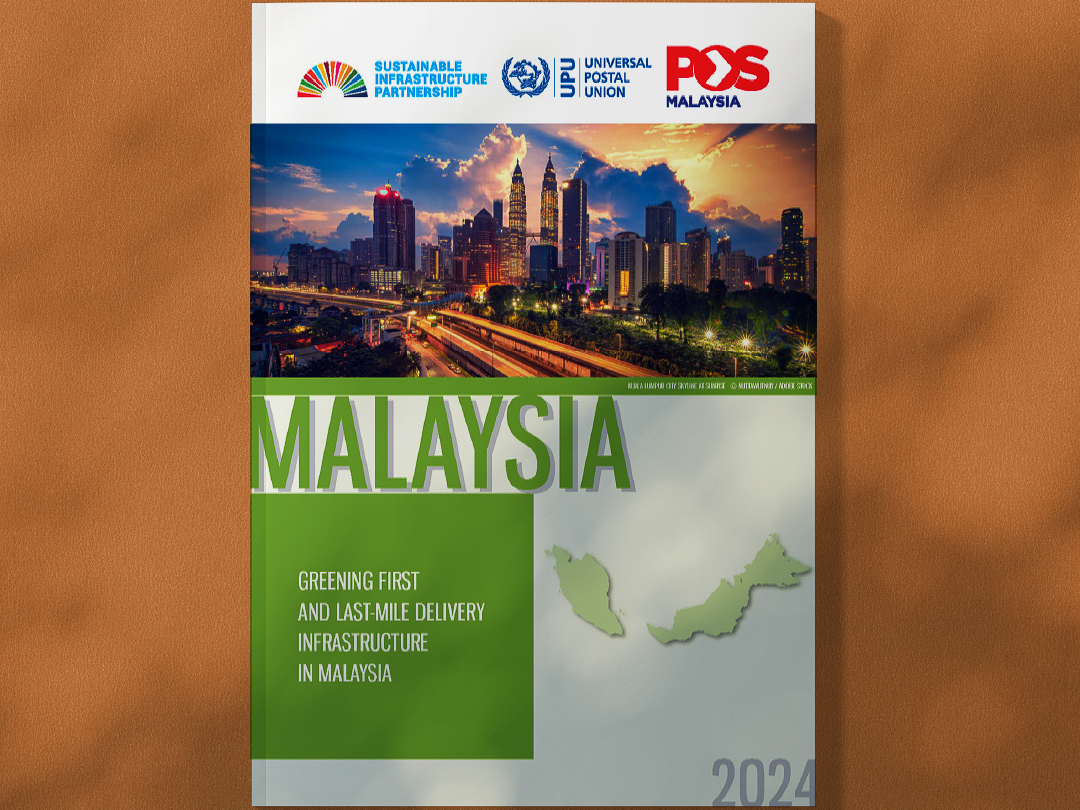
Greening First and Last-Mile Delivery Infrastructure in Malaysia
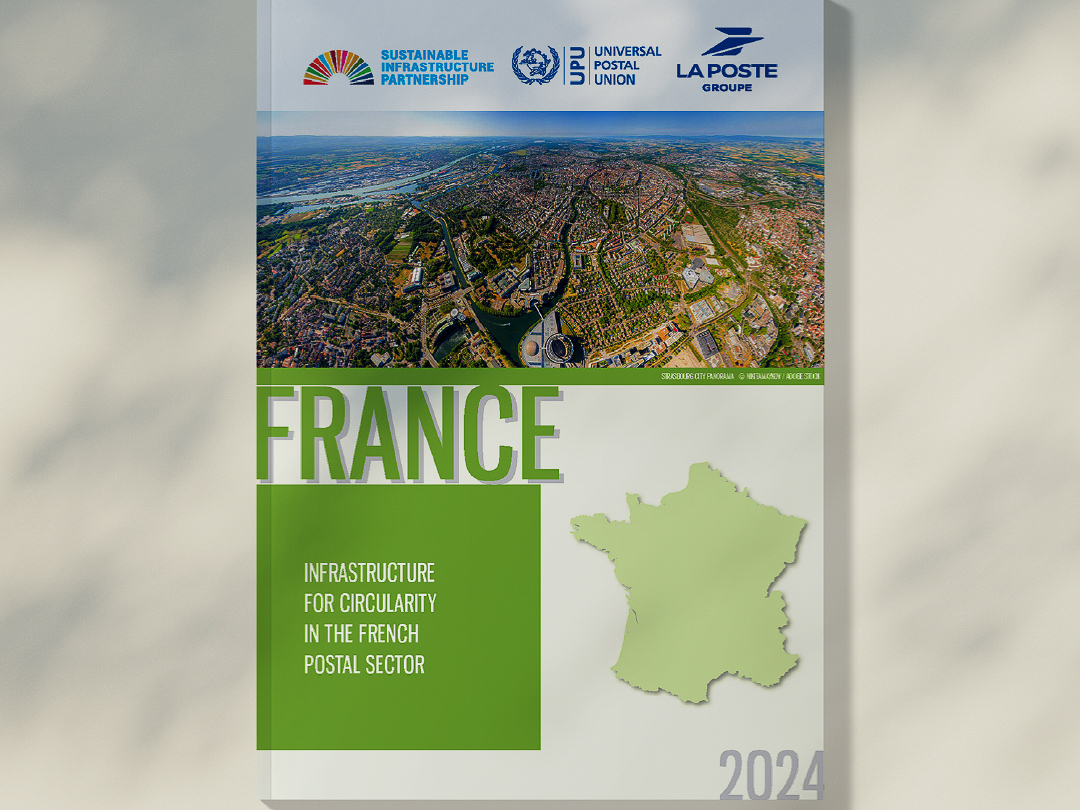
Infrastructure for Circularity in the French Postal Sector
Related news

From risk to revenue and resilience: Postal leaders to review business case for climate action in Dubai

UPU and UNITAR partner to advance climate action in the postal sector
The Universal Postal Union (UPU) and the United Nations Institute for Training and Research (UNITAR) have partnered to launch a global webinar series – the "Climate Engagement Programme for Postal Sector Stakeholders".
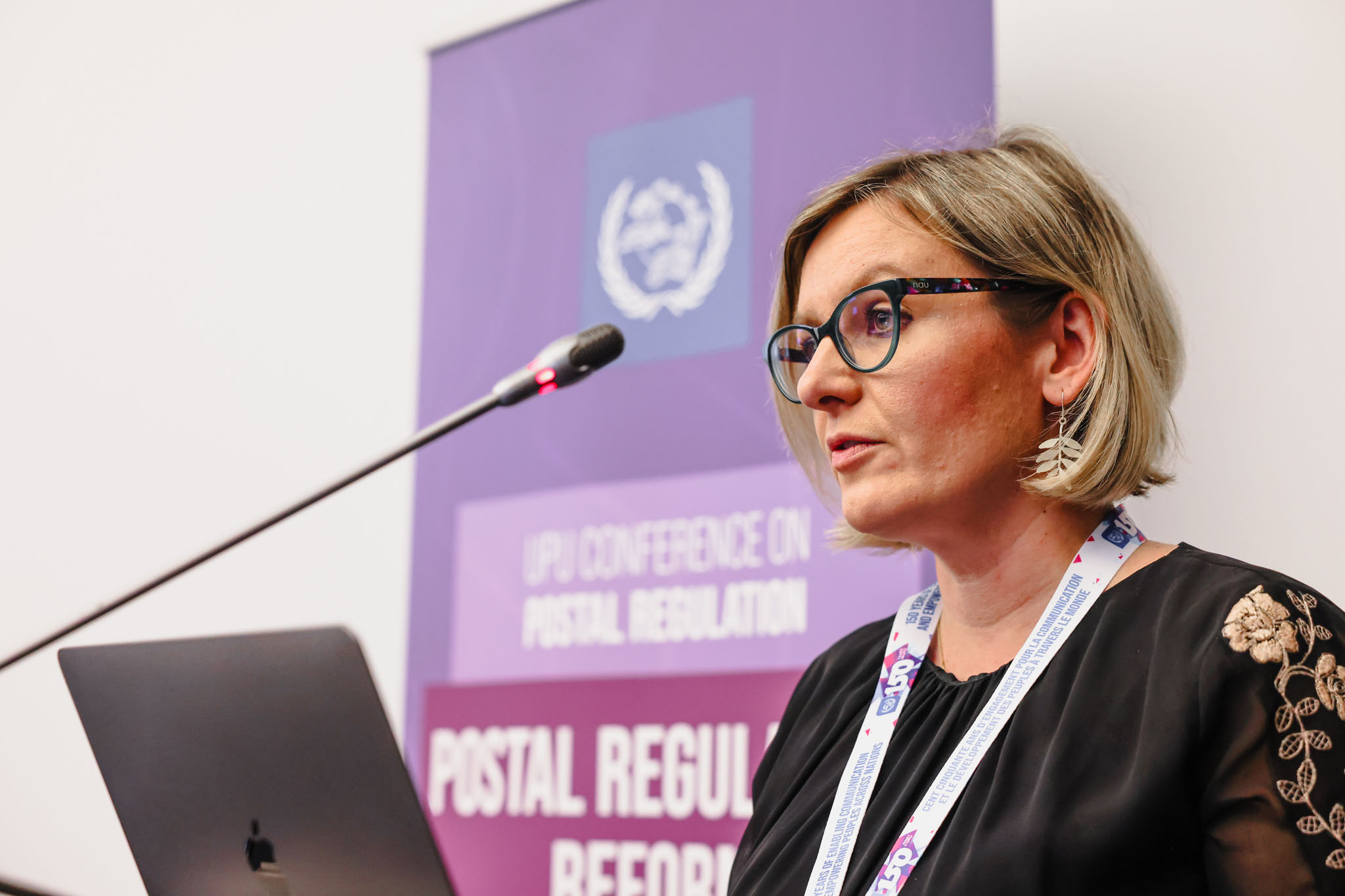
UPU conference on postal reform continues shaping postal services with global regulatory insights
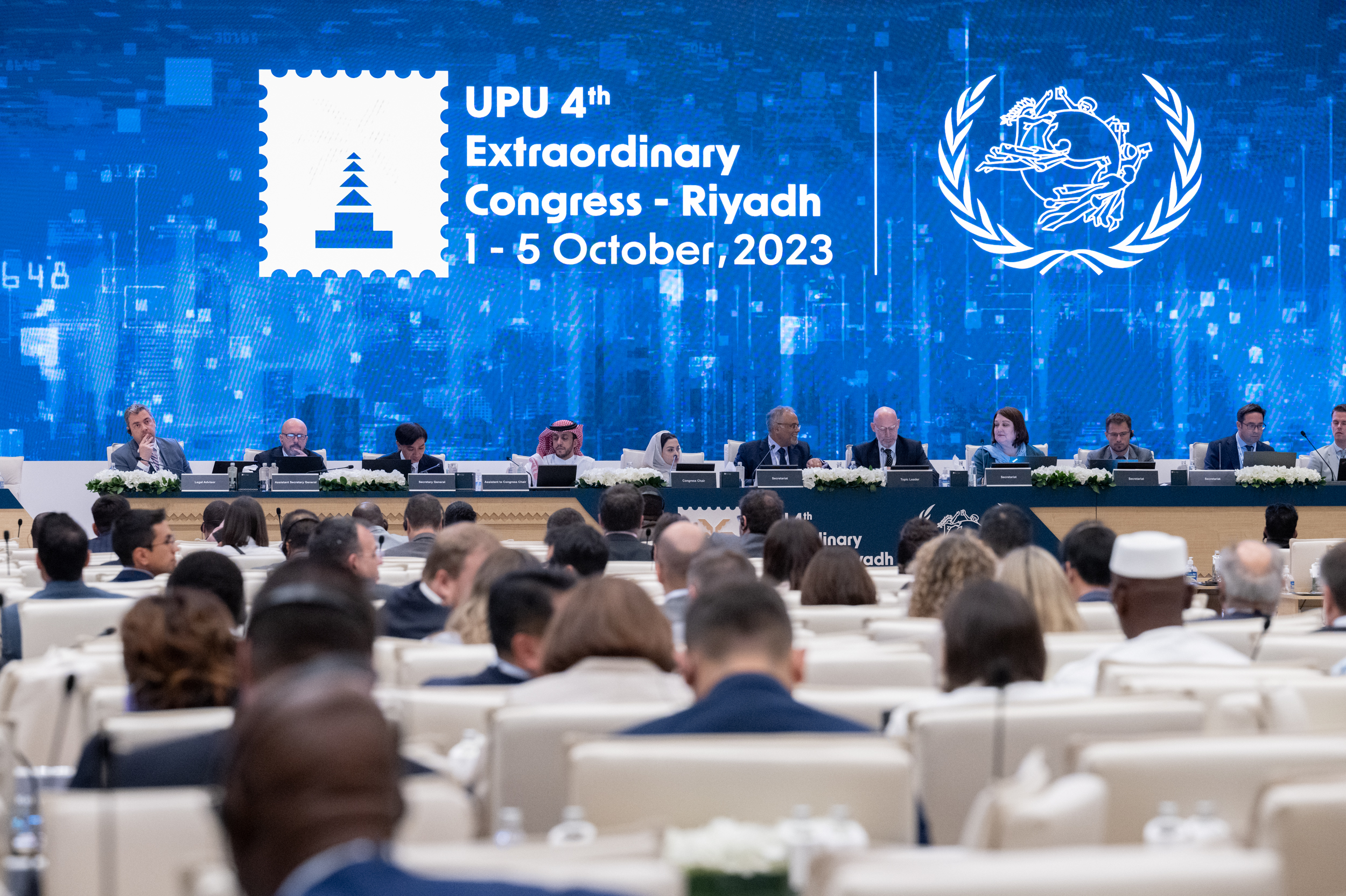
UPU paves path for climate action and postal financial services
The UPU’s fourth Extraordinary Congress has agreed on an historic “Green Package” including voluntary climate action targets for the sector, as well as approving an ambitious modernization plan for postal financial services that sets the course for interconnection with the wider postal sector.

UPU hackathon makes international postal data available for the first time
Berne, 28 June – The Universal Postal Union (UPU) – the UN specialized agency for international postal cooperation – held its inaugural postal data hackathon, making available data from the UPU, UN partners and 30 postal operators for the first time ever for collaborative analysis and the development of data-driven solutions with partners within and beyond the postal sector.
UPU members zero-in on regulation for climate action
The UPU’s bi-annual Conference on Postal Regulation, held on the margins of its Council of Administration sessions this May, highlighted a need for aligned postal and sustainability regulations and standardized data on postal carbon emissions to set appropriate reduction targets.

Partnerships are key to Correo Argentino’s Sustainability Programme
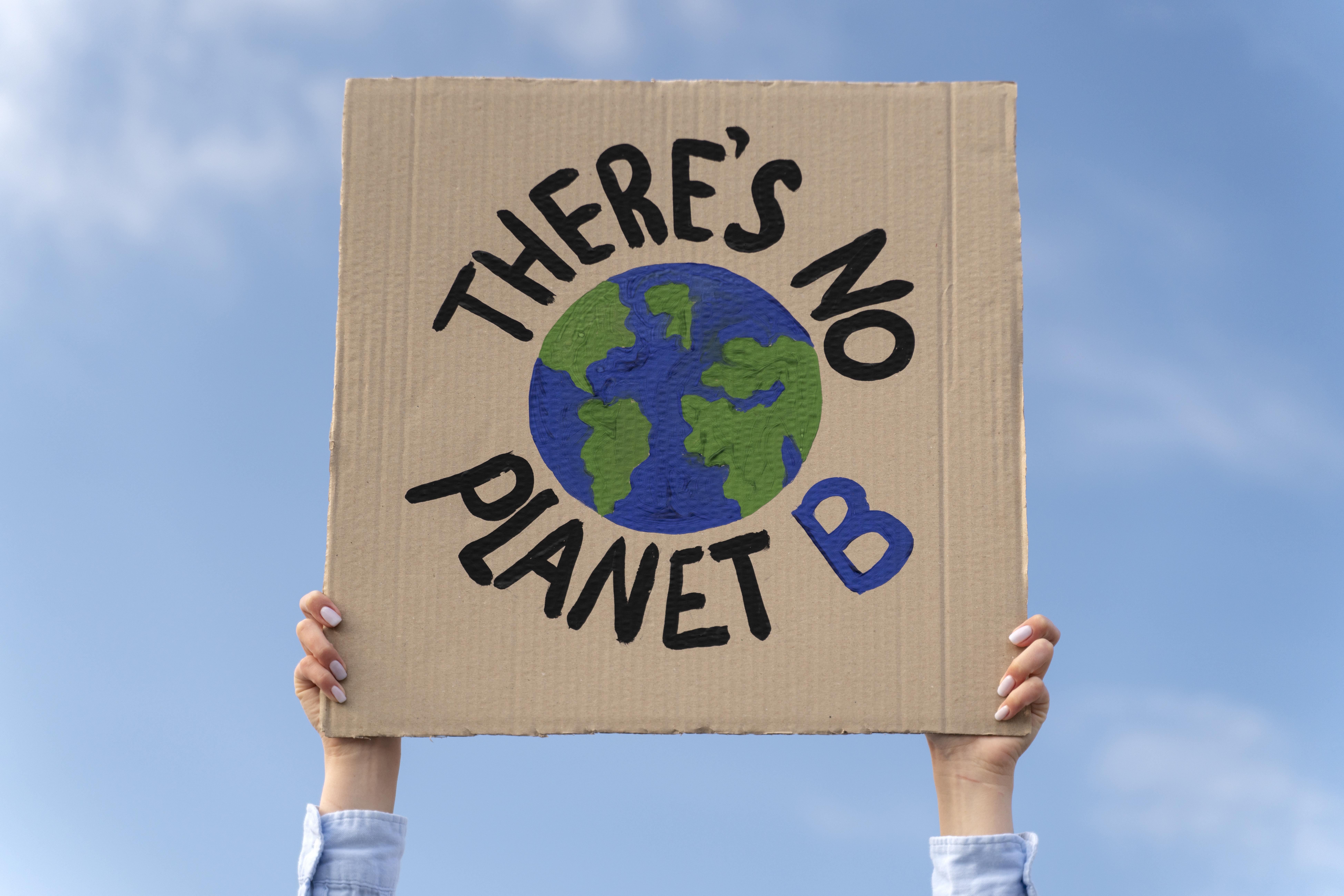
How Posts can advance a climate-resilient future
